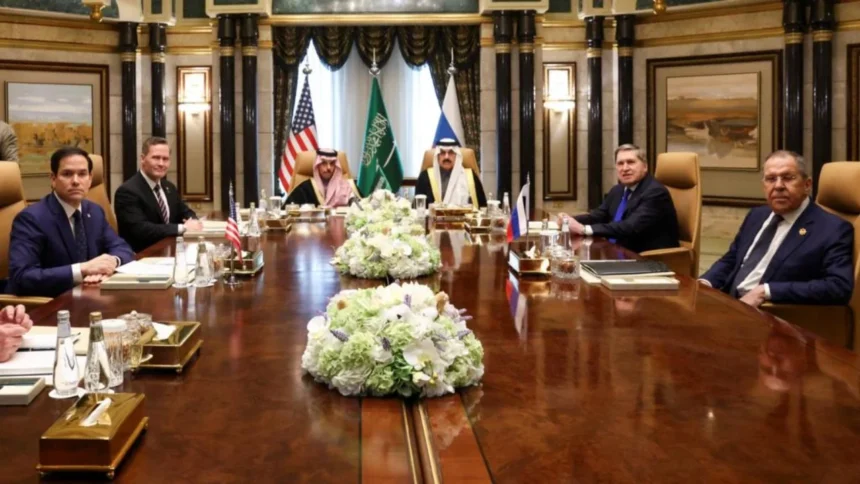The recent US-Russia talks in Riyadh have largely been seen as a victory for Moscow. While Russia presents the war in Ukraine as a NATO assault on it, these discussions help solidify that misleading narrative, reports CNN.
Russia is also gaining tangible benefits. U.S. Secretary of State Marco Rubio hinted that U.S. and Russian embassies would return to a more functional level following mutual expulsions that began after the 2018 poisoning of Russian ex-spy Sergei Skripal. This signals that Russia is emerging from isolation, with a functional diplomatic relationship on the horizon.
However, Russia did not secure a face-to-face meeting between Presidents Trump and Putin, which was a cornerstone of Trump’s Ukraine peace strategy. Such a summit may still take place, but not in the immediate future.
For Ukraine, the talks offer little satisfaction. The Riyadh summit failed to meet the White House’s goal of forcing Ukraine into uncomfortable concessions for a rapid peace agreement. Peace talks will continue with other negotiation teams, likely delaying any major outcomes. Ukrainian President Zelensky, reacting to the summit’s conclusions, canceled his scheduled trip to Riyadh and condemned the talks that involved Ukraine without its presence.
Meanwhile, after a week of intense geopolitical shifts, a quiet moment emerged when American officials acknowledged that Europe’s involvement would be essential going forward. Despite initial claims that Europe would be excluded from peace talks, the U.S. administration clarified that European nations remain crucial partners.
In the longer term, the lack of a swift agreement benefits Putin. The ongoing confusion, recalibration, and uncertainty among Ukraine’s allies only weaken its morale and sovereignty.







